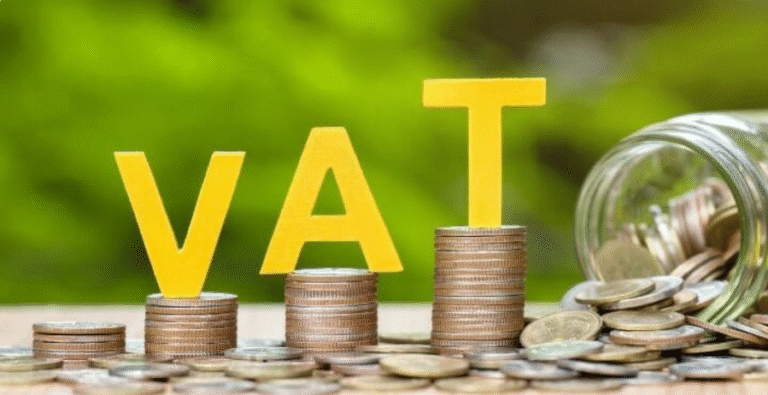Acting Commissioner-General of the Ghana Revenue Authority (GRA), Anthony Kwasi Sarpong, has highlighted the government’s decision to raise the Value Added Tax (VAT) registration threshold as a major relief for small and micro enterprises.
Speaking at the KPMG–UNDP 2026 Post-Budget Forum themed ‘Resetting for Growth, Jobs and Economic Transformation, in Accra on Monday, November 17, Mr. Sarpong said the reform is part of a broader shift toward a simpler, more efficient, and technology-driven tax administration.
He explained that the government’s proposal to increase the VAT registration threshold for businesses dealing in goods from GHS200,000 to GHS750,000 will remove a long-standing burden on smaller enterprises that often struggle to comply with VAT requirements.
“Part of the reforms is both a structural process and technology-driven. So the first thing the government has proposed is to lift the threshold of VAT registration from GHS200,000 to GHS750,000 in respect of goods,” he said.
“This actually takes away the burden from small, micro and individual enterprises that struggle to keep the books as far as VAT is concerned.”
According to him, the reform will give small businesses the space to operate freely without the pressure of VAT compliance until they grow beyond the new threshold.
“We are lifting this away and we are saying focus on your business, deliver service. When you go above the threshold we will come and collect our taxes, but until you get there, just focus on your business,” he added. “So this is a big relief that is going to support our micro enterprises to focus on their businesses and do what they do best.”
His comments reinforce the government’s broader narrative under the 2026 Budget, which Finance Minister Dr. Cassiel Ato Forson presented to Parliament as part of a major tax reform programme aimed at building a fairer and more business-friendly economy.
Dr. Forson announced several reforms, including the abolition of the COVID-19 Health Recovery Levy, a reduction of the effective VAT rate from 21.9 percent to 20 percent, and the upward adjustment of the VAT threshold, measures expected to return an estimated GHS5.7 billion to businesses and households.
The Finance Minister also outlined steps to modernise tax administration through digital VAT monitoring systems, fiscal electronic devices, and a VAT reward scheme, while committing to a comprehensive review of Ghana’s tax laws to align them with global standards.
Government believes these reforms will simplify compliance, close revenue leakages, and support private-sector expansion, anchoring the broader national agenda of growth, job creation, and economic transformation.
Source:radiotamaleonline


